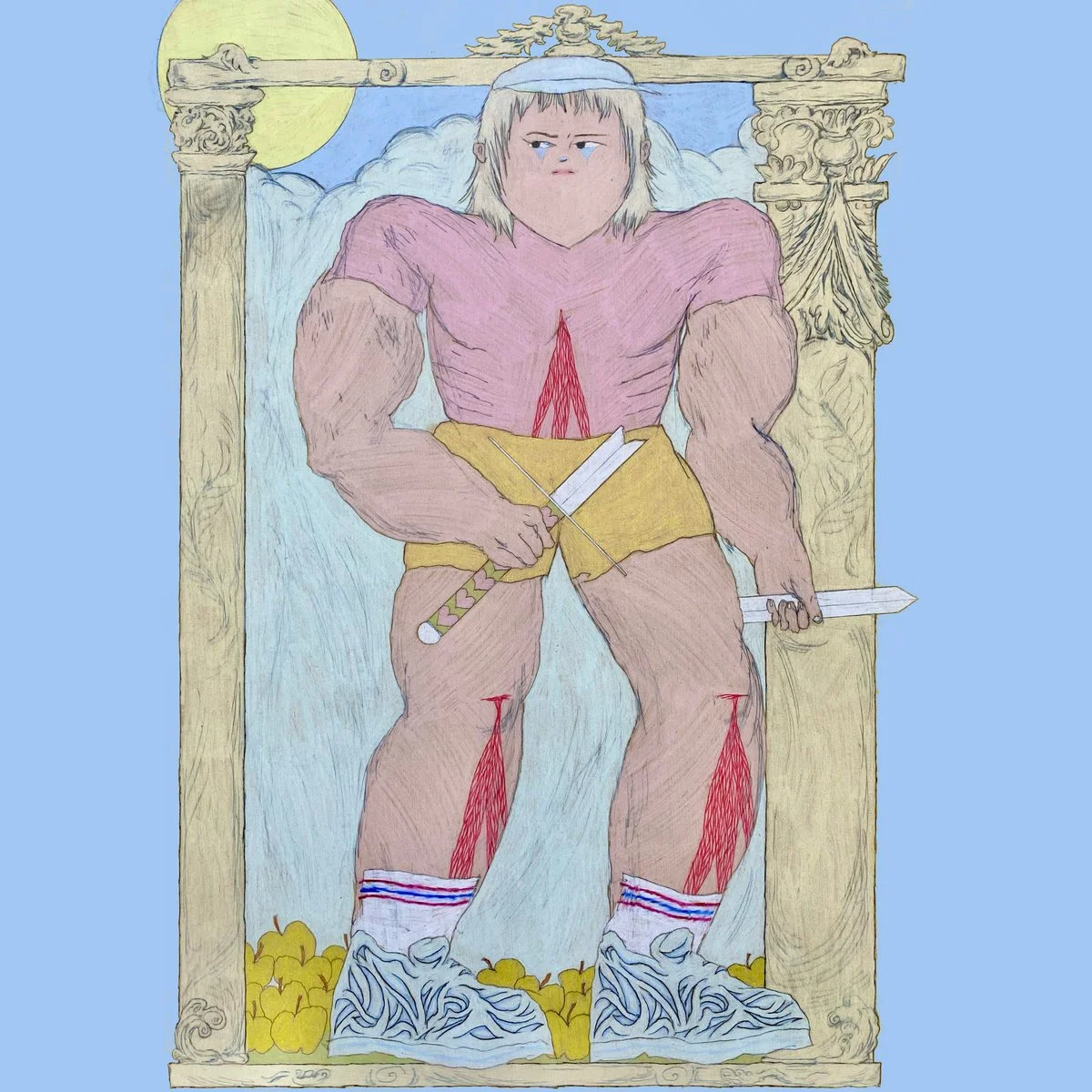by Caroline Nieto
Theadoore’s first album Fool’s Errand is an indie rock romp with an experimental streak. Chock full of wayward melodies and ions, the album is steeped in honesty and awkwardness. Theadoore, based in New York City, is the brainchild of Grace Ward, who writes, performs and mixes all of the music, sometimes accompanied by a full band at live shows. The band evokes a vaguely 2000s eclecticism—think Cat Power or Joanna Newsom—which is bolstered by the jangly guitars of bygone twee bands. The album's dynamism is certainly a product of Ward's symbiotic relationship with their guitar, a duet that ebbs and flows through unison and dissonance.
The album begins with “Walking Around,” a study in alienation and the self-doubt that it breeds. Ward isn’t tied down by time, letting the song slow during moments of vulnerability. There’s a pointed lull when they sing, “I just need somebody to tell me they can see me, that I’m real.” Errant cymbals, tambourine, and cowbell sound in the background at irregular intervals, leaving as quickly as they came. Ward is adept at staving off calamity just as it comes crashing in—the next track, “Doomy,” has similar stints of ferocity and calmness. It’s a meditation on changing feelings, some that fade before the future and others that linger. The song begins with a chromatic guitar lead, just one of many zig zagging melodies on the album. Ward’s voice mirrors the guitar line, contorting with each word and bordering on guttural with each new admission. Claims of “I want to feel natural” and “I wanted to feel full” reveal themselves to be empty desires. As the song tapers off, funky percussion enters the foreground, and there’s an irregular ticking like a clock breaking down—a testament to Ward’s lax approach to tempo. Woodwinds crescendo suddenly and fade away, and Ward is left singing “I don’t feel those things anymore.” Though the title implies doom and gloom, it leaves the affirmation that some feelings fall by the wayside, “and that’s okay.”
Fool’s Errand does not subscribe to the confines of any one genre. “Stain” begins like an ambient track, rife with horns and buzzy synth that give way to a rhythmic vocal melody. The song is delightfully scatterbrained, clinging to the vocal line to anchor its form (yet another concept Theadoore doesn’t subscribe to). Ward continues to explore self-scrutiny, landing on the motif, “deep in the heart is where you find the darkest stain.” “Stain” is lyrically sparse—the song gives precedence to its instrumentation, allowing sounds to swell and subside with the mood of a given section. Even when it comes to composition, Theadoore is less interested in linear storytelling than the pursuit of truth; “Messages” pairs an offbeat melody with equally confounding lyrics, describing Ward’s tendency to misremember information. Ward repeats “I think I misheard you” and “can you repeat yourself?” enough to be resigned with self-assurance alone. “Messages” bewilders with its melody of close intervals and chromaticism, even destabilizing the listener by quickly panning its guitar line towards the end of the song. Each track on Fool’s Errand is adept at throwing itself off balance and getting back up again.
Between little vulnerabilities and revelations, Ward grapples with introspection as a form of self-destruction. On “Stray Dog Matters,” Ward likens themself to the titular dog, singing “I have no name, just my pattern.” This track theorizes identity through action rather than stability, where running around in circles is as good as arriving at a destination. The final song, “In the Ring” models what happens when one arrives at a stop that’s just as unstable: facing a series of problems in a relationship. Ward realizes this conflict as a boxing match, albeit one that’s undesired, where “we’re dancing around in circles,” avoiding the center of the ring. Their voice seems to be run through a compressor, sounding like the tinny sound of a corded telephone. Fool’s Errand tracks a strain of communication that sputters and decays, and by the end of the record, Ward decides, “this is not my fight anymore.” No matter who ends up being the last one standing, “it’s not mine.”

